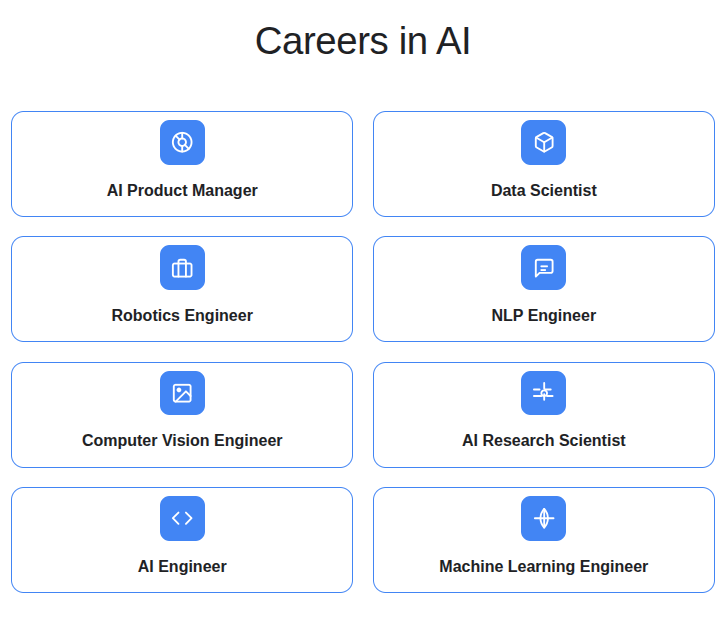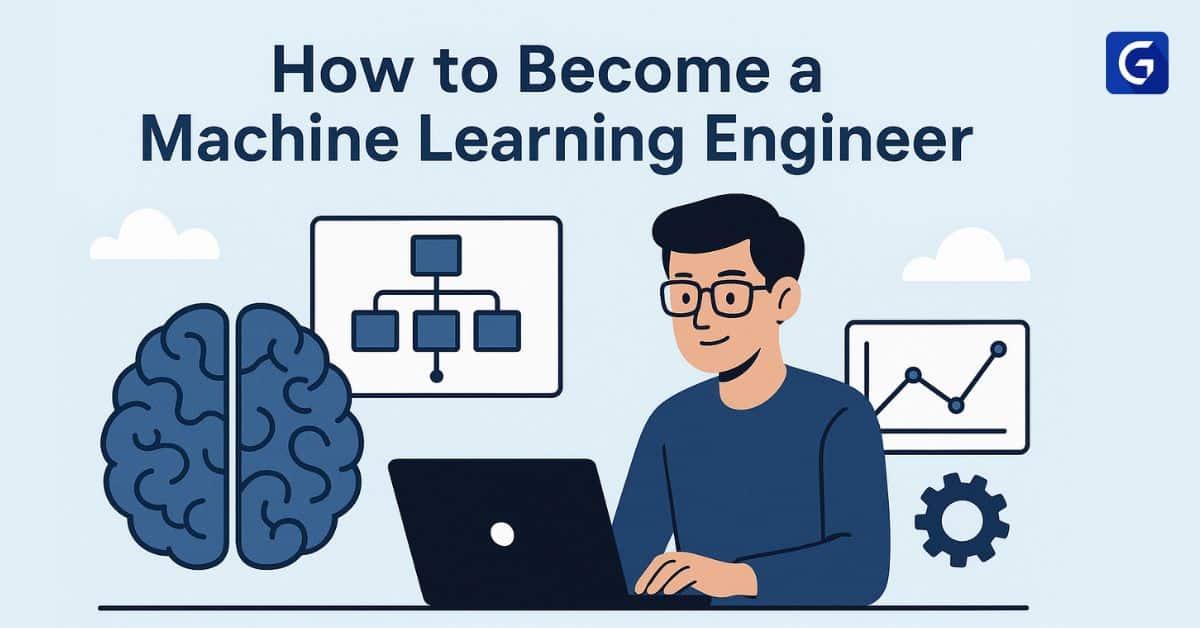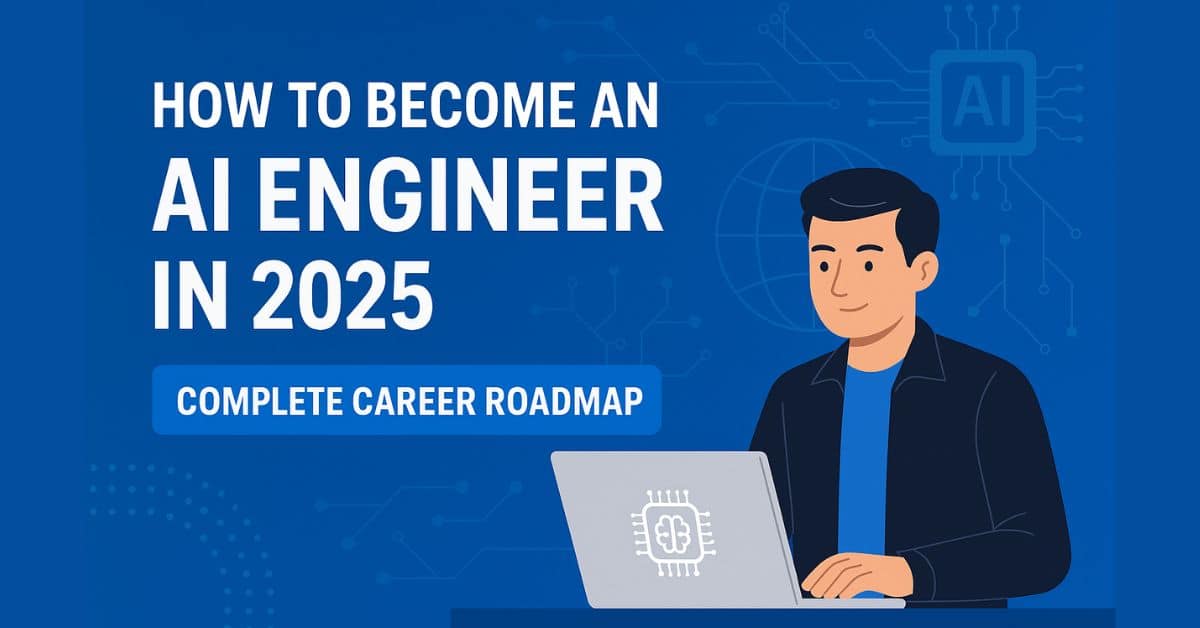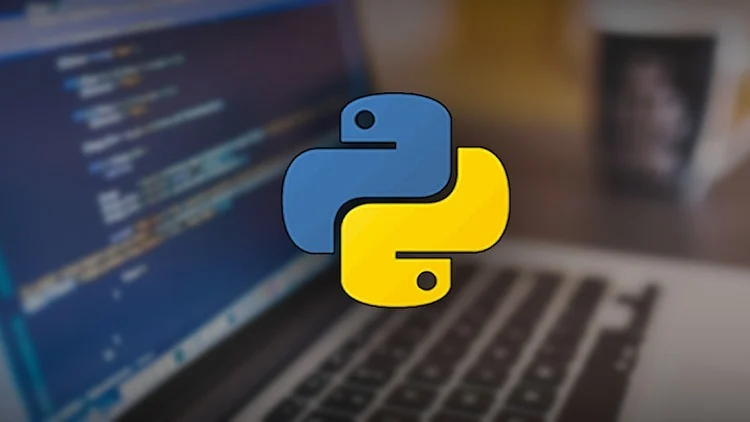Are you concerned about the impact of AI on your profession? You’re not alone.
With Artificial Intelligence changing the world, and still changing it at a staggering pace, people all around the world are asking themselves how they can be relevant -or even ahead- of the times of intelligent automation.
Organizations are applying AI to automate processes, optimize decision-making, and provide a smarter customer experience. This wave of adoption has generated a huge demand for professional personnel with the capability to narrow the gap between AI technologies and actual business requirements.
In this article, we will discuss the 8 high-demand AI jobs and what they entail, the skills required to work, and how you can prepare to work in these positions. These positions not only have high growth prospects and competitive pay but also the opportunity to secure the most lucrative careers.
Why AI Careers Are Booming in 2026
With the adoption of AI technology in business processes has led to a 25% productivity boost in the manufacturing business, in which over 35 percent of e-commerce revenues come through AI-based systems. The AI job market represents a wide array of future-proof employment opportunities to those who are willing to be a part of AI-powered job roles that bring the next wave of automation & data-driven decision-making across industries.
8 High-Demand AI Jobs in 2026

1. AI Engineer
The AI Engineers are important contributors to the development of AI as they are engaged in their actions, which include creating AI solutions & developing their applications in real-world problem-solving needs.
- The everyday tasks of AI Engineers consist of model development activity & business leadership involvement.
- They align AI solutions & integrative activity among AI tools, products, & services, earning an annual median salary of $145,080
To become successful in the area, one needs to master Python programming, possess the knowledge of such frameworks as TensorFlow or PyTorch, & know how to find the solution to complicated problems.
Additionally, if you're just starting with Artificial Intelligence, Master Artificial Intelligence by Great Learning is ideal to explore the fundamentals of AI, machine learning, deep neural networks, GenAI, & to build key skills in the latest technologies.
2. Machine Learning Engineer
A Machine Learning Engineer develops automatic learning algorithms that can enable computers to learn through the datasets & automatically improve their performance in a minimal amount of human code.
- Machine learning engineers carry out their roles by creating, testing, & implementing machine learning models & automating activities.
- The average annual salary of a machine learning engineer in the US is $109,143.
- Their role is crucial because they design and implement intelligent systems, such as recommendation engines and fraud detection models, that help organizations make smarter decisions, optimize operations, and deliver personalized user experiences.
Those looking to build expertise in this domain often pursue specialized programs, such as an online MS in Artificial Intelligence and Machine Learning, which provide a comprehensive foundation in programming, statistics, and operations of ML frameworks.
3. Data Scientist
Data Scientists study extensive databases to generate practical information that guides business planning. The role of Data Scientists remains essential throughout the e-commerce, finance, and healthcare sectors, as they utilize data insights to enhance operational efficiency and pattern prediction.
- The scope of their responsibilities includes developing data models, performing predictive analytics, and supporting key company decisions.
- Professional success for data analysts requires expertise in both data analysis techniques and programming skills, as well as machine learning practices and statistical methods.
To achieve success in the field, you must select a suitable educational path. Formal degrees, along with Bachelor's and Master's programs, establish the basic theoretical and practical foundations, while specialized options, such as the MS in Data Science program, further sharpen the professional skills that businesses urgently need and allow you to earn the average annual salary of $65,674.
Closely related to data science roles, Data Architects play a vital part in designing the infrastructure that supports large-scale analytics and AI systems. Learn more about what a Data Architect does, required skills, and career pathways in this guide: How to become a Data Architect.
4. AI Research Scientist
AI Research Scientists advance AI technology by developing novel algorithms and conducting research experiments that propel the field forward.
- The research team conducts planned experiments and publishes their results through collaboration with academic institutions and industrial partners.
- To excel in this position, one requires professional-level mathematical skills, combined with extensive learning experience and a solid understanding of research methods.
- AI Research Scientists are crucial in developing technological advances, which determine how AI applications evolve throughout time.
Understanding the key responsibilities and tools of a Data Analyst can also help build a strong base for growth in AI-focused roles, as many professionals begin their careers as Data Analysts before advancing into data science or AI specializations, earning an average annual salary of $115,443 as an AI research scientist in the US.
5. Robotics Engineer
Within the field of robotics engineering, professionals design and develop intelligent robotic systems to automate various industrial operations, ranging from manufacturing activities to logistics and healthcare applications, and earn an average annual salary of $120,997 per year.
- The responsibilities of these professionals encompass robot creation, coding activities, test runs, and system maintenance.
- They develop intelligent machines through a perfect blend of robotics engineering and Artificial Intelligence integration capabilities to execute autonomous complex tasks.
- The implementation of automation by industries drives continual expansion in the need for Robotics Engineers and shows no sign of slowing down.
Automation also extends beyond robotics into software quality and performance testing. Professionals aiming to ensure the reliability of AI systems can explore a career as an Automation Test Engineer, responsible for designing test frameworks and improving AI model efficiency. Learn more in this detailed Automation Test Engineer Career Guide.
6. Computer Vision Engineer
Through the development of systems, Computer Vision Engineers enable computers to understand visual information from pictures and video content.
- Their programming empowers applications to recognize faces, drive autonomous vehicles, and deliver augmented reality capabilities.
- Earning the average annual salary of $168,803, these specialists are responsible for creating and fine-tuning algorithms that enable machines to interpret visual data, thereby bridging the gap between raw images and actionable insights for real-world applications, such as medical diagnostics and robotics.
- The necessary abilities for this field include deep learning methods, image processing, and advanced computer vision techniques, skills that are increasingly valued as data becomes central for business solutions and innovation.
7. AI Chatbot Developer / NLP Engineer
The combination of AI Chatbot Developers and NLP Engineers is transforming how businesses interact with customers by developing systems and conversational agents that can understand and generate human language.
- These professionals design multi-tiered chatbots and build sophisticated NLP models to strengthen dialogue and user engagement. They collaborate closely with other engineers to create systems that can comprehend human voice and text and react accordingly, with the average annual salary of an NLP engineer $86,193.
- Their work requires competency in NLP, Python, and mastery of chatbot frameworks, as well as an understanding of how to integrate AI models for responsive, context-aware conversations.
- A strong foundation, such as one built through a comprehensive Natural Language Processing tutorial, is crucial for excelling in this field.
As LLM and NLP AI models continue to be into demand with AI chatbot developer, a related and fast-emerging role is that of the Prompt Engineer who designs and optimizes the inputs that guide AI models to produce relevant outputsis also at the boom.
You can explore more about how to become a prompt engineer and build the right skill set for this GenAI-driven role.
8. AI Product Manager
The role of the AI Product Manager exists to merge technical operations with enterprise priorities, ensuring that AI project efficiency aligns with organizational principles. For a detailed understanding of what the role entails, explore this comprehensive guide on AI Product Manager skills, responsibilities, and career growth.
- Earning the average annual salary of $128,091, these professionals steer product direction and oversee development tasks, maintaining effective team relationships throughout the process.
- Knowledge of product management, AI proficiency, communication skills, and business understanding are essential competencies.
- The central importance of AI Product Managers in business strategy development is growing, as they are crucial for achieving successful AI implementation and maximizing the value of AI investments.
CONCLUSION
In the year 2026, AI will have numerous opportunities with many rewarding roles that will be offered to individuals with appropriate competencies.
Among these professions, AI Engineers, Data Scientists, NLP experts, and AI Product managers are the careers that improve the technological and business functioning of modern society.Those who want to become leaders in the area of academic innovation and advanced technology research can apply to get a Doctorate in AI and Machine Learning to explore new technological frontiers.









